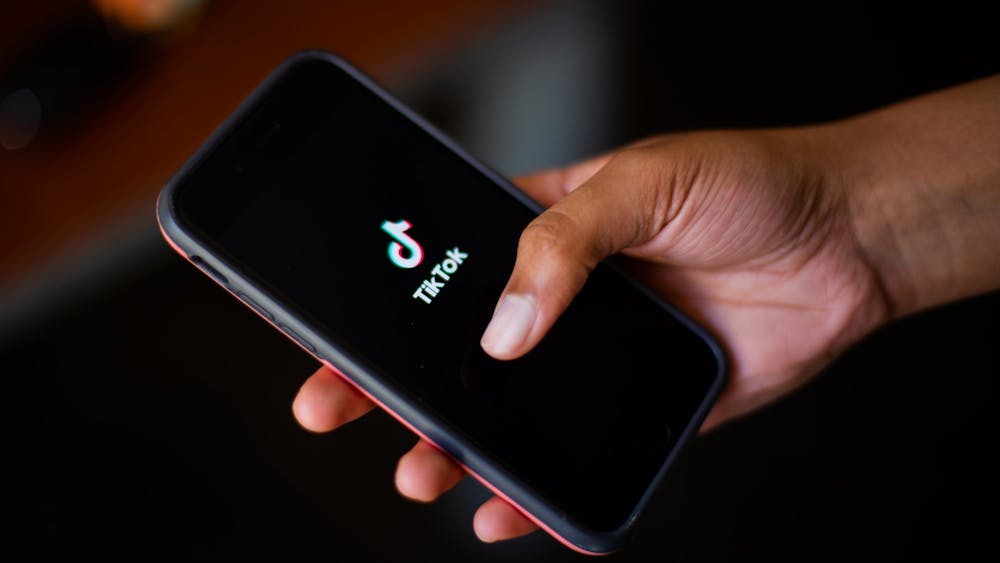As the status of TikTok sits in limbo, some ASU students who create videos using the app see a potential ban as more of an inconvenience than a threat, while others find it disheartening.
An executive order on Aug. 6 from President Donald Trump, set to take effect on Sept. 20, states it will prohibit Americans and U.S. companies from doing business with TikTok’s parent company, ByteDance — which is headquartered in China.
Citing national security concerns that stem from data TikTok collects from its users, the order essentially forces ByteDance to sell its U.S. operations by the time the order takes effect or risk forgoing a profit.
Trump signed another order on Aug. 14 that explicitly orders the company to sell its U.S. operations and destroy any user data it has collected from Americans by Nov. 12.
While the legality of the orders have been questioned by experts, the threat of a ban still looms.
For Mimi Zwaneveld, a sophomore studying communication, the controversy of the app is unfounded, and a ban "would mainly just be something to be sad about. I would miss making content that makes other people laugh."
"I am a really big believer in laughter being the best medicine," said Zwaneveld, who has accrued nearly 130,000 likes on her TikTok videos under the username @yungzwan. "This pandemic was something that nobody saw coming and since everybody's life is on pause, I want to give people something to make them smile throughout the day."
Jenna Arend, a childhood YouTube star who turned to making videos on TikTok and is now a viral sensation on the app, has upwards of 8.2 million likes on her videos. TikTok isn’t just another social media network for Arend, a junior majoring in broadcast journalism.
“With TikTok being so easy, you can shoot the video, you can edit it and be done in a matter of minutes from your phone," she said. "It’s kind of changed the whole social media game for me.”
Arend has nearly 150 videos on her profile, many of which detail her college life. She even has a TikTok on the Free Application for Federal Student Aid, better known as FAFSA.
Arend said TikTok’s ultra-curated 'for you page' is part of what makes the platform incredibly captivating for users.
“I feel like the engagement rates on TikTok are so much higher than any other app," Arend said. "You go through phases of what you want to watch. I’m always downloading the super funny ones so I can show them to everyone and I’m sure that’s how TikTok targets everything."
Arend’s high volume of followers, in addition to TikTok’s high engagement rates, also provide another source of income through sponsorship deals.
"My business email was loaded with 12 TikTok inquiries today," she said. "If TikTok goes away, I’m going to be extremely sad and I don’t think I know what I’d do, for the entertainment factor or the fact that I make money off of this."
TikTok user @theamazonbox, who is a freshman majoring in computer science and was granted a request for anonymity due to privacy and safety concerns, uses TikTok to post comedic videos of herself masquerading as a smiling Amazon package.
She sees a potential ban as something that she could work around.
"I would probably use a VPN to start making videos based in different regions," @theamazonbox said. "The app is so international that even though most of my followers are American, I could still make videos for people in other countries to watch."
Sona Shah, a freshman studying business data analytics, said she recently experienced what it's like to go viral on TikTok.
The video, which shows photos of how Shah and a group of friends have aged since her freshman year of high school, has 54,000 views and counting.
"It was honestly really cool to know that tens of thousands of people saw my video," Shah said. "I had a lot of fun making (the video) because I got to go through old pictures and finish a tradition I started with my friends four years ago, so I was really happy that people enjoyed it and were sharing it with their friends."
She says she didn't even start making videos on TikTok until COVID-19 progressed in the U.S. in March, leading to her spending more time cooped up inside.
"All my friends had (TikTok) and they kept sending me videos, so I figured I might as well just download it myself now that I don't have much to do," Shah said.
Now, however, Shah's newfound hobby is at risk of a nationwide ban.
"I am glad the government is paying attention to (TikTok privacy concerns) but there are so many other apps and programs that have our data at this point, and it's up to the user how comfortable they are using apps that collect data," she said. "Ultimately, I am careful about what I put on my videos, but we do need to hold companies accountable for what they do in the background with our data."
Reach the reporter at bdoemel@asu.edu or follow @brockdoemel on Twitter.
Like The State Press on Facebook and follow @statepress on Twitter.




